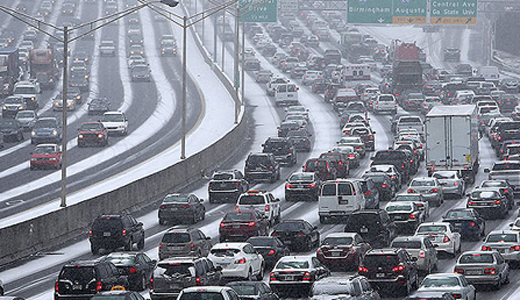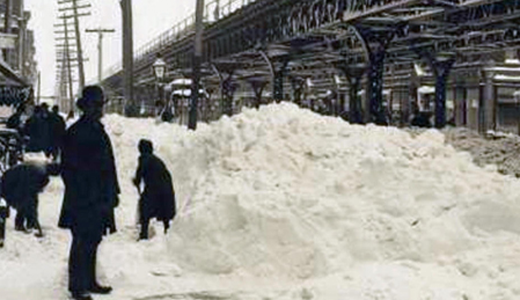 2014
2014
Residents of Atlanta were shocked by a Tuesday blizzard that left motorists sleeping in their cars and children stuck overnight at school while the snow rendered roads impassable. Fingers have been pointed at the city’s administration for mismanaging snow alerts and dismissals, leading to massive gridlock. CNN reports:
Atlanta Mayor Kasim Reed said Wednesday that he believes it was a mistake for businesses and schools to release people early at roughly the same time as Tuesday’s snow hit the area. “I said immediately yesterday that releasing all of these folks was not the right way to go,” Reed said in a testy exchange with CNN’s Carol Costello on Wednesday morning.
Forecasters had warned that Atlanta was expecting 1 to 2 inches. But in the morning, when the snow had not arrived, people went to work and school, like nothing was coming. Then it did. At about the same time early Tuesday afternoon, schools, businesses and government offices sent home students and workers as the streets began to ice. The mayor said government should shoulder part of the blame.
“We do take responsibility for having the business community, the government and our schools basically leave all at once,” he said.
 1888
1888
The Great Blizzard of 1888, as it later came to be known, was one of the worst natural disasters to ever befall the Northeastern United States. New York City was brought nearly to a standstill, and in the storm’s aftermath, a greater push for underground transportation took root amongst those who had been left stranded, unable to use the elevated railroads or the streets. The New York Times meditated on the snow’s impact:
In looking back at the events of yesterday the most amazing thing to the residents of this great city must be the ease with which the elements were able to overcome the boasted triumph of civilization, particularly in those respects which philosophers and statesmen have contended permanently marked our civilization and distinguished it from the civilization of the old world—our superior means of intercommunication. Before the fury of the great blizzard they all went down, whether propelled by steam or electricity. The elevated trains became useless; so did the telegraph wires, the telephone wires, the wires for conveying the electric lights, the wires for giving the alarms of fire.
It is hard to believe in this last quarter of the nineteenth century that for even one day New-York could be so completely isolated from the rest of the world, as if Manhattan Island was in the middle of the South Sea.